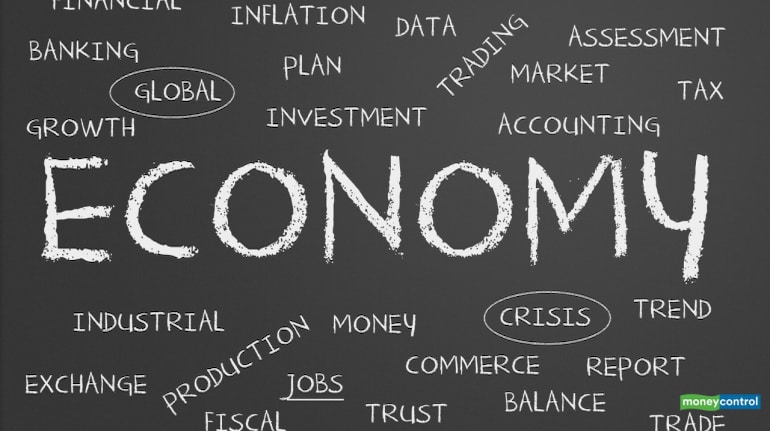



The affirmation of India sovereign rating by S&P Global Ratings on June 10 after downgrade by Moody's last week has come as a relief and also SHOWS belief in long-term growth story of India, experts feel.
"S&P's rating affirmation of India has come as a relief. The markets were worried about a potential downgrade with disastrous consequences. Now, since that threat is out of the way, the government should focus on walking the talk on reforms," VK Vijayakumar, Chief Investment Strategist at Geojit Financial Services told Moneycontrol.
Global rating agency S&P has affirmed its 'BBB- (long term) and A-3 (short term) unsolicited foreign and local currency sovereign credit ratings on India, and maintained outlook on long term rating as stable.
Sankar Chakraborti, CEO at Acuité Ratings & Research also said, "S&P reaffirmation of India's sovereign rating at 'BBB-' with a stable outlook will provide comfort to the global markets who may have had concerns on the rating slipping to non-investment grade based on the rating actions from another agency."
"The COVID-19 lockdown and the economic slowdown notwithstanding, the global rating agencies need to take note of India's resilience through past economic crises. It is comforting that S&P has highlighted the economy's longer term ability to grow at a rate higher than peers and the sound external position as reflected in its high foreign currency reserves," he added.
S&P expects India to maintain sound net external position and its stable outlook assumed marked fall in India fiscal gap post FY21.
"We could raise India's rating if government significantly cuts fiscal gaps, but see pressure on India rating if growth doesn't recover from 2021 and if government deficits exceed our forecast," the agency said, adding it sees India FY21 general government fiscal deficit at 11 percent of GDP.
S&P sees strong recovery from India post deep contraction in FY21 and India GDP growth at 8.5 percent in FY22.
Indian economy remains a long term outperformer versus peers, said S&P, adding but India government's fiscal deficits consistently elevated and labour markets have weakened dramatically.
"At present, the ratings by all the agencies are at the same level. Moody's brought it at an even level with S&P. There is an acceptance that the long term prospects for the domestic economy is quite bright. Relatively higher GDP growth compared to other countries, and sound forex reserves, and pro-active central bank policies may help the economy to tide over the waves of crisis faster," Joseph Thomas, Head of Research at Emkay Wealth Management told Moneycontrol.
"But the risks remain, on the fiscal front with a ballooning fiscal deficit both at the centre and states, uncertain trajectory of inflation etc. There is an urgent need for revival of employment and demand generation, through the time-tested and classic Keynesian tools like the MNREGA," he said.
S&P in its report stated that though the recent India reforms suggest constructive policymaking path, the risks to India's long-term growth outlook have intensified.
Hence, weak financial sector, rigid labour markets and weak private investment could hamper India recovery if not addressed, it feels.
The government in May announced nearly Rs 21 lakh crore worth of fiscal and monetary measures to revive the economy and said it would continue to support the economy as and when is needed.
After more than two-month of lockdown, India restarted its economic activities in all non-containment zones with effect from June 8 and would re-open other segments gradually in phases given the COVID-19 risk.
S&P has forecast India's economy to shrink by 5 percent this fiscal.
"The stable outlook reflects our expectation that India's economy will recover following the containment of COVID-19 pandemic and the country will maintain its sound net external position," S&P said while affirming India's rating at 'BBB-' and maintaining a stable outlook.
"While the current year will indeed see significant macroeconomic challenges, we also share S&P’s view that there will be a gradual improvement over the next 2-3 years if the economic reform measures are well executed," Sankar Chakraborti said.
However, last week, Moody's Investors Service downgraded India's local-currency senior unsecured rating to Baa3 from Baa2, and its short-term local-currency rating to P-3 from P-2. The outlook remains negative.
The decision to downgrade India's ratings reflects Moody's view that the country's policymaking institutions will be challenged in enacting and implementing policies which effectively mitigate the risks of a sustained period," it said in a statement.
While the action is taken in the context of the coronavirus pandemic, it was not driven by the impact of the pandemic, it added.
"In the context of S&P's rating affirmation, Moody's is not likely to further downgrade India's rating. They are likely to watch the implementation of recent reforms and attempts at fiscal consolidation in FY22, particularly the roadmap for that. Fiscal expansion in FY21 is global," Vijayakumar said.
Disclaimer: The views and investment tips expressed by investment expert on Moneycontrol.com are his own and not that of the website or its management. Moneycontrol.com advises users to check with certified experts before taking any investment decisions.
Discover the latest Business News, Sensex, and Nifty updates. Obtain Personal Finance insights, tax queries, and expert opinions on Moneycontrol or download the Moneycontrol App to stay updated!